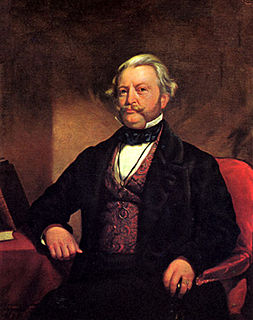A Quote by Michael Bloomberg
We haven't had a world war in a long time. We do have mass movements of people out of Syria and North Africa. But, fundamentally, if you take Japan, you're complaining that the economy isn't booming, they'd like to have slightly higher inflation.
Related Quotes
Livestock adopted in Africa were Eurasian species that came in from the north. Africa's long axis, like that of the Americas, is north/south rather than east/west. Those Eurasian domestic mammals spread southward very slowly in Africa, because they had to adapt to different climate zones and different animal diseases.
World War II was really unusual, because America was in the Great Depression before. So the war did help the US economy to get securely out of this decline. This time, the war [in Iraq] is bad for the economy in both the short and long run. We could have spent trillions in research or education instead. This would have led to future productivity increases.
South Korea at the end of the Second World War had a very low level of literacy. But suddenly, like in Japan, they determined they were going in that direction. In 20 years' time, they had transformed themselves. So when people go on saying that it's all because of perennial culture, which you cannot change, that's not the way the South Korean economy was viewed before the war ended. But again within 30 years, people went on saying there's an ancient culture in Korea that has been pro-education, which is true.
Living here in North America - I have been Americanized. When I go back home now, there are things that I have far less tolerance for in South Africa. We've come such a long way in terms of race relations and the economy as well as people's willingness to move on. There are still a lot of things that are frustrating about being in South Africa.
We are certainly seeing a greater diversification of origin... it used to be that the best trained terrorist cyber facilitators were living in Pakistan, Saudi Arabia, or Western Europe. These days, we are seeing increasing numbers of such individuals from North Africa and what I like to term "Greater Syria" - Lebanon, the Palestinian territories, Jordan, and Syria itself.
World War Two was a world war in space. It spread from Europe to Japan, to the Soviet Union, etc. World War Two was quite different from World War One which was geographically limited to Europe. But in the case of the Gulf War, we are dealing with a war which is extremely local in space, but global in time, since it is the first 'live' war.
Central bankers always try to avoid their last big mistake. So every time there's the threat of a contraction in the economy, they'll over stimulate the economy, by printing too much money. The result will be a rising roller coaster of inflation, with each high and low being higher than the preceding one.
Why did the people think [Vietnam war] was fundamentally wrong and immoral? The guys who ran the polls, John E. Rielly, a professor at the University of Chicago, a liberal professor, he said what that means is that people thought too many Americans had being killed. Another possibility is they didn't like the fact that we were carrying out the worst crime since the Second World War. But that's so inconceivable that wasn't even offered as a possible reason.


































